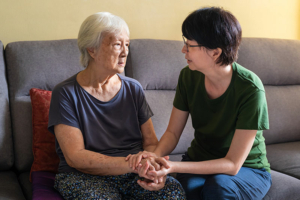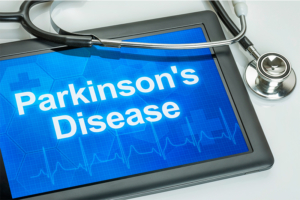Alzheimer’s Care Update – Is Alzheimer’s Disease an Autoimmune Disorder?

Alzheimer’s Care Update: Researchers are exploring if Alzheimer’s could be an autoimmune disorder.
Pinning down a cure for Alzheimer’s has become just as complex as the tau threads long considered to be the core cause of the disease. But now, researchers may be drawing one step closer to untangling the puzzle of Alzheimer’s disease, through another train of thought. New findings are leaning towards the hypothesis of an inflammatory response in the brain, which poses the question: could Alzheimer’s disease actually be an autoimmune disorder?
People living with diabetes, Crohn’s disease, and rheumatoid arthritis know all too well the effects of an overactive immune system. In a perfect world, our immunity shields us from bacteria, viruses, and other infections that need to be eliminated. However, with an autoimmune disorder, antibodies attack non-invasive, healthy cells, triggering inflammation and other undesirable effects.
In earlier Alzheimer’s disease studies, those infamous amyloid plaques have been the focus. Yet we also understand that even in healthy brains, those plaques are present and are suspected to perform some form of helpful function. The immune system targets these plaques, destroying them along with potentially healthy cells in the process: suggestive of a possible autoimmune response.
This alternative new strategy to studying and formulating treatment possibilities for Alzheimer’s has earned lead author of the research, Don Weaver, MD, PhD, of the Krembil Brain Institute, the 2022 Oskar Fischer Prize, which “recognizes innovative ideas in Alzheimer’s research that look beyond prevailing theories.”
As for everyone else, it’s a hopeful sign that a cure for such a devastating condition could be on the way. Until then, turn to Responsive Home Care for creative, skilled, and compassionate dementia care services that help people with Alzheimer’s disease continue to live to their fullest potential in the homes they love. We’re experienced in supporting those with dementia and the families who love them to better deal with some of the more distressing aspects of the disease, including:
- Growing discomfort in the late afternoon and overnight hours (sundowning)
- Wandering and asking to go “home”
- Repetitive behaviors and conversations
- Memory loss
- Agitation, aggression, and other difficult and strong emotions
- And more
Our expert caregivers work together with your family to provide as much or as little care as needed to provide you with the breaks from caregiving you need for your own health and wellbeing. After all, providing care for a person with dementia is never a single-person undertaking, especially as the disease progresses. Taking time away for self-care and to recharge is extremely important for you and your family as well as for the senior with dementia. A well-rested family caregiver is more patient and better prepared to supply the level of care a senior with dementia needs and deserves.
Contact us online or at (954) 486-6440 for further helpful dementia care resources, and to schedule a free in-home meeting to learn more about how our home health services in Fort Lauderdale, FL and the nearby areas can help maximize quality of life for somebody you love.

 If there is one constant thing in the race to solve the puzzle of Alzheimer’s, it is change. It appears as though any time researchers start to get a grasp on one piece of information, new information shifts their hypotheses in an alternative direction. That is most certainly the situation with the amazing new developments in
If there is one constant thing in the race to solve the puzzle of Alzheimer’s, it is change. It appears as though any time researchers start to get a grasp on one piece of information, new information shifts their hypotheses in an alternative direction. That is most certainly the situation with the amazing new developments in  Researchers at the
Researchers at the 


 Researchers are at long last starting to get a handle on why the
Researchers are at long last starting to get a handle on why the 